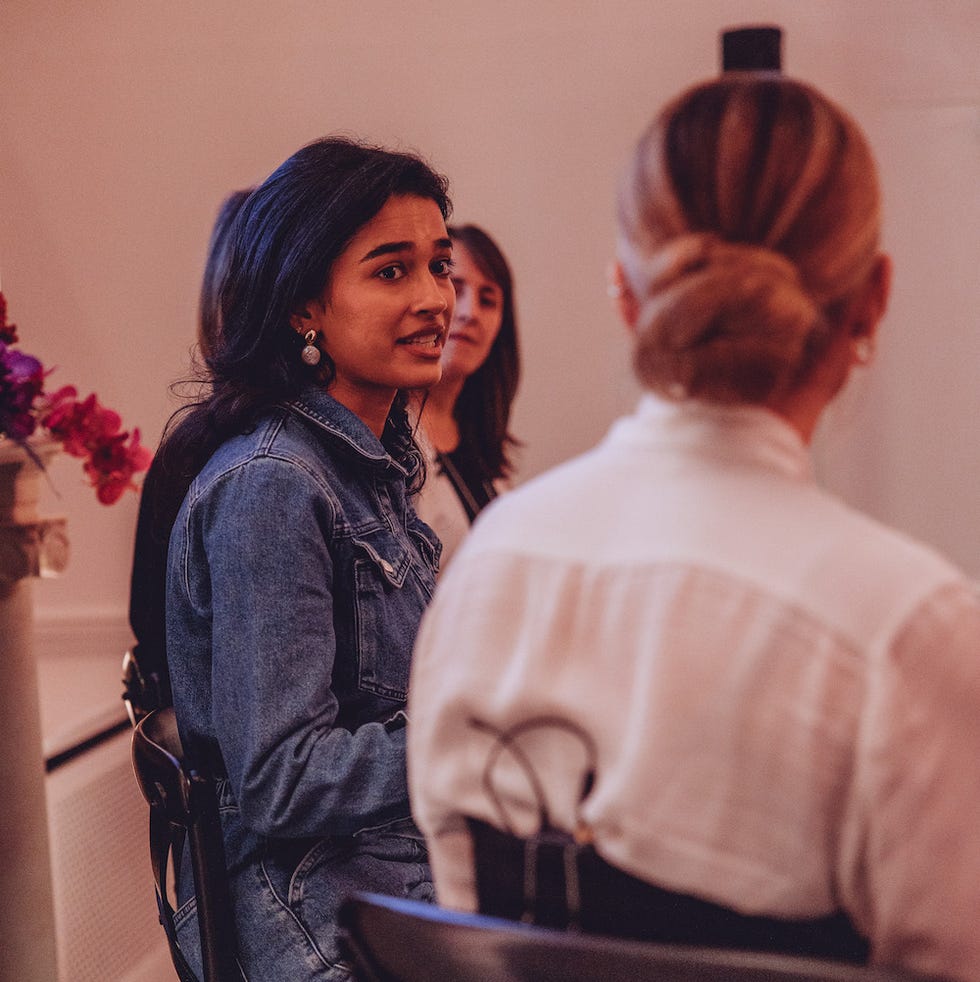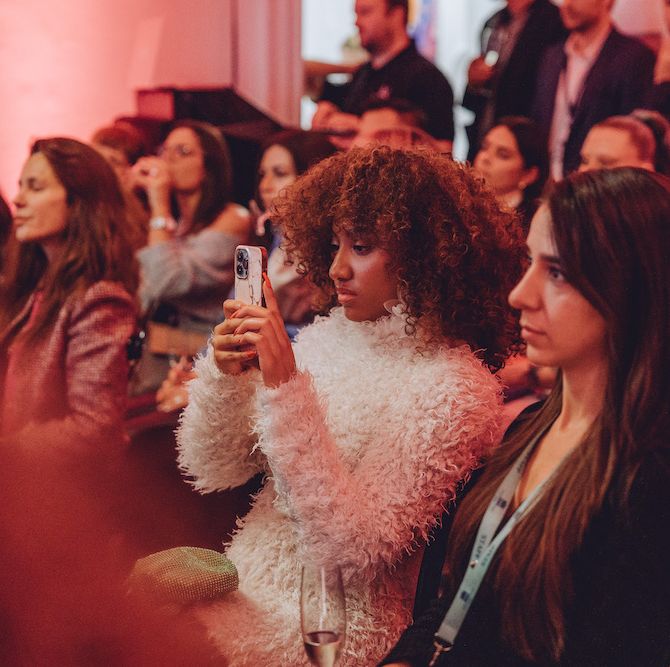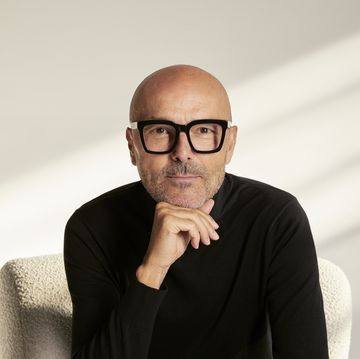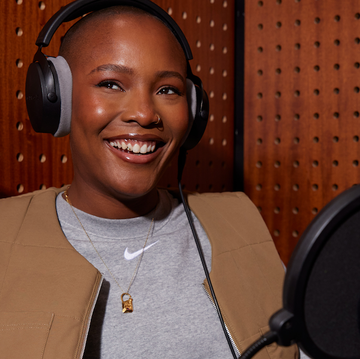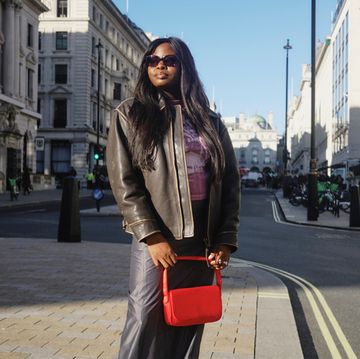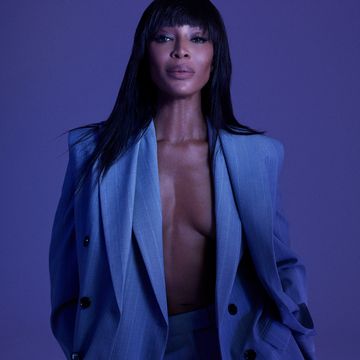Community, culture and careers are three central themes in many of our lives, but how often do we consider their crossover?
That’s what we explored at our panel event in partnership with the Cambridge School of Visual & Performing Arts (CSVPA), where guests were treated to drinks and canapés ahead of a scintillating conversation with Mursal Hedayat, CEO of Chatterbox, Pip Jamieson, founder and CEO of The Dots, and England rugby legend Katy Daley-Mclean. Together with host Natasha Bird, Executive Editor of ELLE, they discussed the ways in which culture shapes our behaviour and the importance of finding a sense of belonging.
Here are five things we learned:
1. Community creates opportunity
‘A community has an ability to see you in a way that the general public don’t,’ Hedayat explained. She created Chatterbox as a platform to help marginalised professionals find opportunities, with its beginnings rooted in helping the Syrian refugee community – something she felt empowered to do based on her own experience of fleeing Afghanistan and finding refuge in the UK.
‘Refugees are a historically misunderstood community,’ Hedayat explained. ‘When I started Chatterbox, we weren’t describing refugees as degree holders, engineers, and mathematicians. These are things that describe my parents. Because I belonged to the refugee community, I saw them differently.’
2. People are inherently kind
One topic that ignited agreement across the panel was the power of kindness and how it runs through the core of many communities as a way of encouraging progress. In fact, Jamieson values its importance in bolstering communities so much that she created an algorithm that favours kindness.
‘We have a ‘good’ list of words and a ‘grey list.’ If someone uses language on the ‘grey list’ it will alert us, and awful language will be completely filtered out so that message will never even get through,’ she explains.
She also spoke about how events like the pandemic had proven the power of community in supporting others.
‘I’ve realised that people are inherently kind,’ she said. ‘During the pandemic, someone would post: “I’ve just been made redundant, how am I going to cope?” and suddenly 50 people are giving advice. That’s the bit that makes the craziness of running a tech start-up worth it.’
3. Cultural intelligence is key
When it comes to embracing different cultures to benefit everyone, one phrase was key: cultural intelligence. ‘I disagree with the concept of culture being this monolith,’ said Hedayat.
‘We live incredibly diverse lives, even within cultural buckets and there’s a lot we can learn from each other. At Chatterbox, we’re moving a step beyond language learning and starting to train in cultural intelligence – the ability to communicate effectively with someone regardless of their background. We need to get fluent in being able to take a person at their full value.’
‘Sport is like that because of the diversity of people within it,’ added Daley-Mclean. ‘You need a variety of people, so cultural intelligence was one of the biggest things we learned and, ultimately, what led us to win the FIFA Women’s World Cup. We needed it to get the best out of each other while not making anybody feel they couldn’t contribute.’
4. Leadership is important
Workplace culture can be the reason you stay in or leave a job. And as Jamieson pointed out, that has to start at the top – so leaders take note.
‘If you’ve got a shit leader, it’s hard to change a whole culture,’ she said. ‘But if you’re a leader that’s open to feedback and encourages it, you can do it. For example, at The Dots, we have a happiness survey in which we ask people what they love and don’t love about working here and it’s actually quite brutal. But I’d rather know than have it happen elsewhere.’
5. Unsafe spaces can be useful
The concept of safe spaces is one that we’re all well versed in, but most of us probably haven’t considered how an unsafe space could benefit career progression, and how that lies in supportive communities.
Hedayat says we must consider the value in holding people accountable and not patronising them, especially in the workplace: ‘I think there needs to be a healthy unsafe space for people, just as much as there needs to be a safe space. I wanted Chatterbox to be a place where people were expected to show up on time and deliver a great service and if they don’t, they’re fired – just like in any other job. We’re not a space that will mollycoddle and treat you as less than the grown adult you are.’
Discover more about CSVPA here


